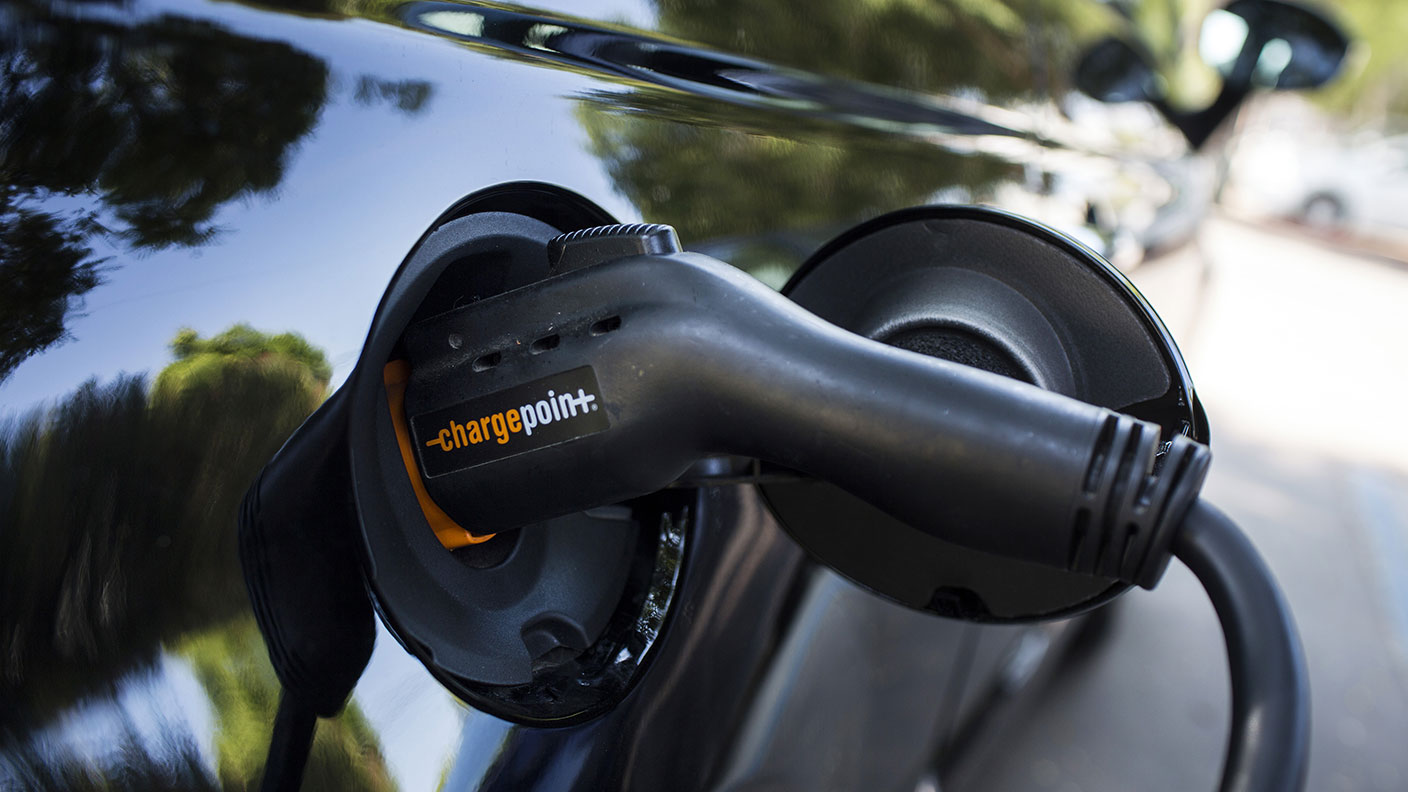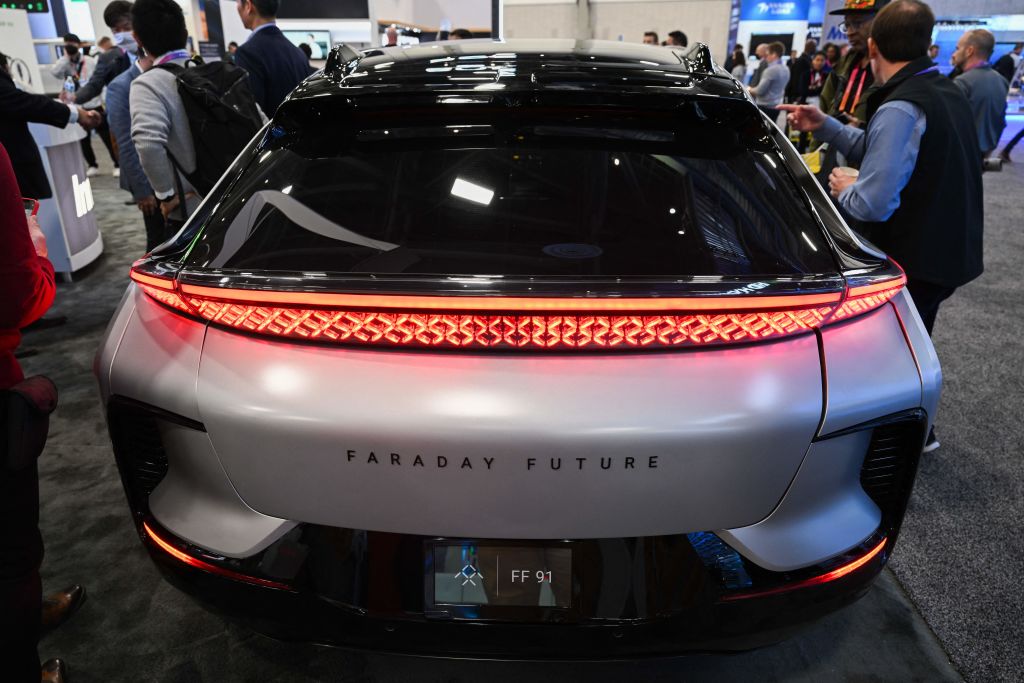Three stocks that will profit from electric-vehicle growth
Professional investor Konrad Sippel of Solactive, index provider for the Electric Vehicle Charging Infrastructure ETF, picks three firms solving the electric-vehicle charging challenge.


Get the latest financial news, insights and expert analysis from our award-winning MoneyWeek team, to help you understand what really matters when it comes to your finances.
You are now subscribed
Your newsletter sign-up was successful
Want to add more newsletters?

Twice daily
MoneyWeek
Get the latest financial news, insights and expert analysis from our award-winning MoneyWeek team, to help you understand what really matters when it comes to your finances.

Four times a week
Look After My Bills
Sign up to our free money-saving newsletter, filled with the latest news and expert advice to help you find the best tips and deals for managing your bills. Start saving today!
The 2021 Glasgow climate summit saw 24 countries pledge an end-date to new sales of internal-combustion engined cars. The purchase of electric vehicles is now also being heavily subsidised in many other countries. It’s estimated that 60% of cars sold globally will be electric by 2040, which translates to around 600 million electric vehicles (EV) on roads across the world.
This will make today’s network of petrol stations obsolete and require an entirely new network to support the increasing number of electric vehicles. While carmakers have seen substantial interest from investors, the industry building the infrastructure required to power these vehicles has been largely overlooked. Electric vehicles require charging in three different scenarios: at home, at work and for long-distance travel along the major motorway networks.
Research suggests that the recommended ratio of electric vehicles to public fast-charging points is ten. The United States’ strategic goal of getting 26 million electric vehicles on the road by 2030 should require around 2.6 million public charging outlets. Currently there are only 113,000, so it is no surprise that the US government has pledged $2.5bn towards the expansion of the public charging network. In Europe it is estimated that around three million public charge points will be needed by 2030, compared with only 250,000 today.
MoneyWeek
Subscribe to MoneyWeek today and get your first six magazine issues absolutely FREE

Sign up to Money Morning
Don't miss the latest investment and personal finances news, market analysis, plus money-saving tips with our free twice-daily newsletter
Don't miss the latest investment and personal finances news, market analysis, plus money-saving tips with our free twice-daily newsletter
This clear demand coupled with heavy government investment and subsidies has created the opportunity for new business models within some of the companies in this sector that are already listed and investable. The three stocks below are all in Solactive’s Electric Vehicle Charging Infrastructure index, which is used by the Electric Vehicle Charging Infrastructure ETF.
The world’s largest network
ChargePoint (NYSE: CHPT) has the largest network of electric-vehicle charging stations in the world. It has a unique business model that provides construction services and optimises the charging workflow via an integrated network, but does not actually own the stations themselves. Its network optimises interoperability between stations, power management, and pricing strategy for the benefit of users and providers alike.
Putting power back in the grid
Wallbox (NYSE: WBX) is an EV charging equipment manufacturer in Europe. Besides providing wall-mounted chargers for homes, it also offers direct current charging that can be used for public fast-charging stations. The company has developed a unique bi-directional charging technology, which allows the EV to discharge power to the owner’s home or back to the grid. This also enables the EV to act as a large battery storage unit for emergency use, power storage for excess solar energy, or if paired with a smart meter to optimise energy costs for households.
A flexible emergency solution
CTEK (Stockholm: CTEK), originally a producer of battery chargers, has also entered the EV charging sector. Apart from manufacturing EV charging stations, accessories and components, the company produces portable EV chargers, benefiting from its expertise in energy storage and portable charging. Its portable EV charger product has a charging power up to 11kw. This compact charger not only provides emergency support for electric vehicles, but also affords flexibility for users who want to use the charger in less urban settings.
• SEE ALSO:
Should you buy an electric car?
How to invest in the multi-decade boom in industrial metals
Get the latest financial news, insights and expert analysis from our award-winning MoneyWeek team, to help you understand what really matters when it comes to your finances.
-
 How a ‘great view’ from your home can boost its value by 35%
How a ‘great view’ from your home can boost its value by 35%A house that comes with a picturesque backdrop could add tens of thousands of pounds to its asking price – but how does each region compare?
-
 What is a care fees annuity and how much does it cost?
What is a care fees annuity and how much does it cost?How we will be cared for in our later years – and how much we are willing to pay for it – are conversations best had as early as possible. One option to cover the cost is a care fees annuity. We look at the pros and cons.
-
 8 of the best houses for sale with electric vehicle charging
8 of the best houses for sale with electric vehicle chargingThe best houses for sale with electric vehicle charging – from a converted World War II control tower in Scotland, to a Victorian country house in Cumbria
-
 The Stella Show is still on the road – can Stella Li keep it that way?
The Stella Show is still on the road – can Stella Li keep it that way?Stella Li is the globe-trotting ambassador for Chinese electric-car company BYD, which has grown into a world leader. Can she keep the motor running?
-
 'EV maker Faraday Future will crash'
'EV maker Faraday Future will crash'Faraday Future Intelligent Electric is failing dismally to live up to its name, says Matthew Partridge
-
 Halifax: House price slump continues as prices slide for the sixth consecutive month
Halifax: House price slump continues as prices slide for the sixth consecutive monthUK house prices fell again in September as buyers returned, but the slowdown was not as fast as anticipated, latest Halifax data shows. Where are house prices falling the most?
-
 Rents hit a record high - but is the opportunity for buy-to-let investors still strong?
Rents hit a record high - but is the opportunity for buy-to-let investors still strong?UK rent prices have hit a record high with the average hitting over £1,200 a month says Rightmove. Are there still opportunities in buy-to-let?
-
 Pension savers turn to gold investments
Pension savers turn to gold investmentsInvestors are racing to buy gold to protect their pensions from a stock market correction and high inflation, experts say
-
 Where to find the best returns from student accommodation
Where to find the best returns from student accommodationStudent accommodation can be a lucrative investment if you know where to look.
-
 The world’s best bargain stocks
The world’s best bargain stocksSearching for bargain stocks with Alec Cutler of the Orbis Global Balanced Fund, who tells Andrew Van Sickle which sectors are being overlooked.
